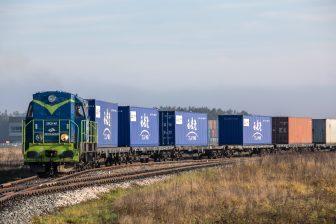
Global rail freight volumes expected to rise in next two years
Global rail freight volumes will rise with 2.8 per cent this year, accounting for an additional 1.3 million tonnes. In 2019, the volumes will increase by 2.1 per cent. That is the prediction of Panteia, a Dutch research institute. Freight movement is in the lift, and the rail sector is likely to grow along, they predict.
Apart from a general growth of freight, the modality has acquired prominence on the political agenda. This will contribute to the expected rise in volumes, said Panteia. The research firm cited the lowering of track access charges in the Netherlands and Germany in 2019 as a key factor stimulating growth. In addition, there are several initiatives likely to push the sector further, such as experiments to operate longer trains (740-metre trains) on an international level, they argued.
Overal freight volumes
Panteia predicts a growth with 3.3 per cent for the total volume of freight transported in 2018. In 2019 growth will continue but at a slower pace, with 2.3 per cent. The prediction is based on the blooming national and international economies. The pace of these growing economies is likely to slow down in 2019. Import tariffs issued by the US and rising oil prices are factors negatively influencing the growth of freight volumes.
The predicted rise in volumes varies according to the modalities, with the road sector expected to witness the highest growth rates; 3.8 per cent in 2018 and 2.7 per cent in 2019. The road sector is much less affected by the energy transition in Germany than rail and barge, Panteia claimed. The rail and barge sectors rely on rising volumes of products other than coal to influence the overall growth rate; the decline in coal transports negatively affects these numbers. The expected growth of barge volumes is 0.6 per cent in 2018 and 0.3 per cent in 2019.
Challenges on the road
Unlike the expected rise in volumes, the road sector will witness some major challenges in the years ahead. Kilometre charges for trucks are around the corner, as well as higher road tolls in Germany in 2019. The oil prices are expected to increase and a shortage of truck drivers is likely to remain a problem affecting the sector.





